1. Let’s Dance (1983)
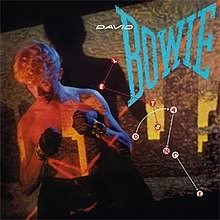
“Let’s Dance” (1983) is a pivotal album in his career, marking his transition to a more commercial sound. Produced by Nile Rodgers, the album blends rock and pop with infectious dance beats, making it an instant hit. The title track, “Let’s Dance,” became a global sensation, showcasing Bowie’s ability to adapt and innovate. This album features other standout tracks like “China Girl” and “Modern Love,” which contributed to its massive success. Bowie’s collaboration with Stevie Ray Vaughan on guitar added a distinct edge to the music, attracting a wider audience.
“Let’s Dance” reached number one in multiple countries and achieved multi-platinum status, cementing Bowie’s status as a versatile and influential artist. This album’s success also helped introduce Bowie to a new generation of fans. With its catchy melodies and danceable rhythms, “Let’s Dance” remains a defining moment in David Bowie’s illustrious career, highlighting his genius in blending different musical styles.
2. The Rise and Fall of Ziggy Stardust and the Spiders from Mars (1972)
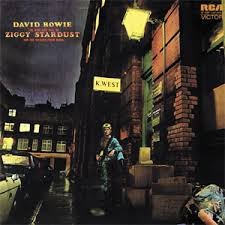
“The Rise and Fall of Ziggy Stardust and the Spiders from Mars” (1972) is a landmark album in rock history. This concept album introduced the world to Ziggy Stardust, Bowie’s androgynous alien rock star persona. With its blend of glam-rock and storytelling, the album explores fame, alienation, and apocalypse. Ziggy Stardust captivated audiences, solidifying Bowie’s reputation as a musical innovator and style icon.
The album’s success was driven by its unique narrative and Bowie’s charismatic performance, both on stage and in the recording studio. Critics and fans alike praised its imaginative approach and unforgettable melodies. “The Rise and Fall of Ziggy Stardust and the Spiders from Mars” not only influenced a generation of musicians and established David Bowie as a trailblazer in the rock genre. Today, it remains a timeless classic, revered for its artistic vision and enduring impact on music and culture.
3. Aladdin Sane (1973)
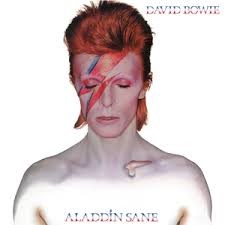
“Aladdin Sane” (1973) represents a bold continuation of his Ziggy Stardust persona, infusing it with a raw, American influence. Often described as “Ziggy goes to America,” the album captures Bowie’s experiences touring the United States, blending glam rock with blues and avant-garde elements. The iconic cover, featuring Bowie with a lightning bolt across his face, became one of the most recognizable images in rock history.
“Aladdin Sane” showcases Bowie’s ability to evolve, pushing musical boundaries with innovative sounds and thought-provoking lyrics. The album’s mix of hard rock and experimental tracks highlights his versatility and artistic ambition. Critics and fans praised its daring approach and memorable performances, solidifying Bowie’s position as a leading figure in the music scene. Achieving commercial success and critical acclaim, “Aladdin Sane” remains a pivotal album in David Bowie’s discography, celebrated for its creativity and influence on subsequent generations of musicians.
4. Heroes (1977)
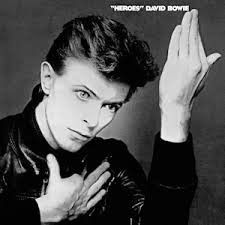
“Heroes” (1977) is a standout album in his “Berlin Trilogy,” showcasing his innovative fusion of rock and electronic music. Recorded in West Berlin, the album reflects the city’s divided atmosphere during the Cold War. The title track, “Heroes,” became an anthem of hope and resilience, driven by Bowie’s passionate vocals and Robert Fripp’s distinctive guitar work.
“Heroes” is notable for its experimental soundscapes, blending ambient textures with rock elements, influenced by Bowie’s collaboration with Brian Eno. The album captures a unique blend of artistic ambition and emotional depth, exploring themes of love, isolation, and triumph. Critics praised “Heroes” for its bold direction and artistic integrity, reinforcing Bowie’s reputation as a force in music. Commercially successful and critically acclaimed, “Heroes” has left a lasting impact on the music industry. Its innovative approach and timeless appeal make it a crucial part of David Bowie’s legacy, continuing to inspire and resonate with audiences worldwide.
5. Hunky Dory (1971)
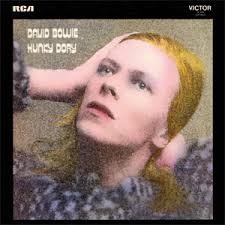
“Hunky Dory” (1971) marks a significant evolution in his career, showcasing his songwriting talent and diverse musical influences. The album blends rock, pop, and folk, reflecting Bowie’s ability to transcend genres. Featuring introspective lyrics and rich melodies, “Hunky Dory” includes some of Bowie’s most enduring songs.
The album’s themes range from personal reflection to social commentary, highlighting Bowie’s sharp observational skills and lyrical depth. His collaboration with musicians like Mick Ronson added a distinct texture to the music, enhancing its appeal. Critics praised “Hunky Dory” for its innovative sound and sophisticated songwriting, helping to establish Bowie as a formidable talent in the music industry.
Despite modest initial commercial success, “Hunky Dory” has grown in stature over the years, becoming a beloved classic among fans and critics alike. Its artistic ambition and timeless quality have cemented its place as a pivotal album in David Bowie’s discography, influencing countless artists and remaining a touchstone in rock music history.
To purchase any of these albums click on the title link

